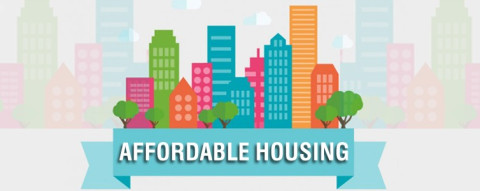
" Introduce Construction Levy to Fund Affordable Housing "
Dr. James Orleans-Lindsay, the Executive Chairman of JL Holdings, a conglomerate that has strong presence in the real estate, has proposed that government should set up a construction levy to generate revenue into and equity fund for the real estate sector to enable developers embark on affordable housing projects. “I am proposing that just as we have a levy that is being used to defray the legacy debt in the energy sector, government should set up a levy that will pull revenue into and equity fund for real estate developers, which will enable them access to cheaper long-term funds to build houses at cheaper rates and make them affordable to Ghanaian.
“Real Estate development is capital-intensive; hence developers may need to resort to borrowing. Likewise, home buyers may also need mortgages to acquire homes. However, the cost of debt financing or mortgages in Ghana is high, with lending rates 19 to 28 percent per annum. That makes it impossible for a private developer to build affordable houses, and is also limiting growth, he said.
Dr. Lindsay made this statement in a presentation on the topic “Marketing in the real estate sector: Pricing and Affordability’, at the Chartered Institute of Management Ghana’s (CIMG) lecture series. He further explained that residential properties are priced based on location, number of bedrooms, design and quality of materials, and are classified into high-end, mid-end and low-end locations. “Comparing pricing with mortgage rate and wages, about 80 percent of urban households cannot afford a mortgage to purchase the cheapest developer-built units in Ghana. Our research has revealed that the least-priced two-bedroom house costs US$ 28,000 meanwhile, when the annual carrying cost of a home exceeds 30% of a household’s income, then it is considered unaffordable for that household”, he indicated. The real estate market in Ghana is largely dominated by the private sector, spearheaded by the Ghana Real Estate Developers Association (GREDA) with about 160 member companies.
GREDA, over the past years, has engaged government on several fonts to find a lasting solution to build affordable housing that will mitigate the ever rising housing deficit: but very little has been achieved due to challenges such as cost of funding , inflation rate, cost of building materials and inadequate supporting infrastructure. Land regimes has been one of the major challenges facing the sector, with multiple land ownership issues and litigation often confronting operations. Dr. Lindsay said: “The affordability analysis has shown that it would be highly impossible for the private developer to provide affordable real estate for the mass population in need of homes, and other types of spaces, at current prevailing conditions; such as high interest rates, cedi/dollar instability, high land and building cost as well high cost of building materials among others.
Ghana’s population is estimated at 30 million people with a growth rate of 2.18% per annum. The majority of this population about 53.9% dwell in urban areas; therefore, the need for commercial and industrial spaces leading to an expansion of the real estate industry has a direct correlation. Data available show that the formal sector comprises about 20% of the entire labor force, out of which less than 7% of those working in the public sector receive a monthly pay of about GH₵ 5,000. A lot more is expected from government and developers – to make provisions that include the over 70% of remaining Ghanaian people in the real estate market.
~By Ernest Bako WUBONTO
~By Ernest Bako WUBONTO
